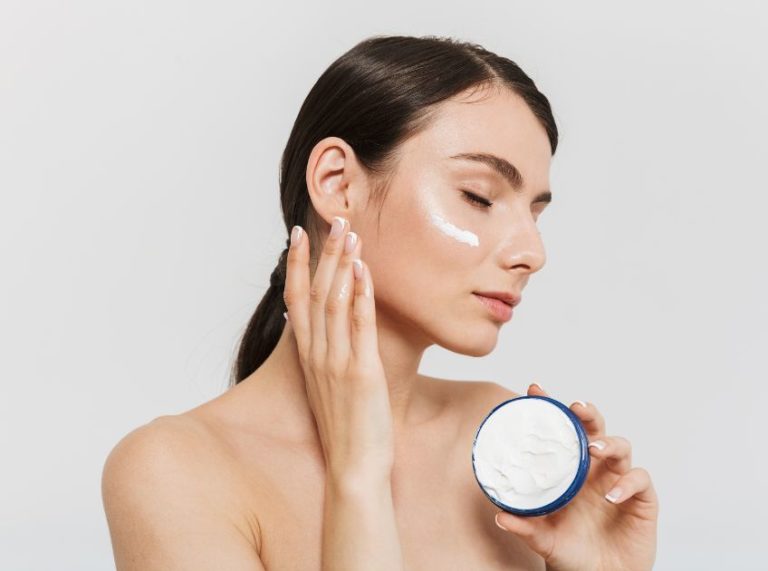
Important: This article is for informational purposes only. Please read our full disclaimer for more details.
Sunscreen is one of the most essential skincare products. Dermatologists suggest that everyone should wear sunscreen whether they are getting exposed to direct sun or not and it’s for all the good reasons. From preventing photoaging to protecting from skin cancer, it’s a must-have product.
Women who get tan even after applying it often wonder, does sunscreen prevent tanning? In this regard, the experts say, sunscreen may prevent tanning but only to a certain extent. You could still get slightly tan after sunscreen application.
This article will deal with the science behind sunscreen and tanning and how sunscreen protects the skin from tan and various other health hazards.
How Sunscreen Works?

Sunscreen is known to provide intense protection to the skin from harmful UV rays (1). Whether your work requires excessive sun exposure or not, you are always advised to wear it before heading out. Even though it is considered a potent product, your skin can still get tanned slightly.
Here, it is important to mention that no tanning is considered safe (2).
There are two types of sunscreens, chemical-based and physical-based, and it is what that decides how they will work-
- Chemical-based sunscreen: Such sunscreens contain ingredients such as oxybenzone and octisalate (3) that absorb ultraviolet rays and alter them before they cause any damage to the skin.
- Physical-based sunscreen: These products contain zinc and titanium oxides (4) that reflect and scatter ultraviolet rays away from the skin. Thus protecting it from its harmful effects.
It is advised to choose a broad-spectrum sunscreen that can safeguard the skin from both UV-A and UV-B type of rays. Both these rays are known to be dreadful for skin health. At the same time, if you are heading towards the beach or thinking of taking a dip in the pool, wearing water resistant sunscreen will prove to be beneficial.
Sunscreen and Tanning
Skin tans when it stays exposed to UV rays for a long period. As a result of this exposure, skin starts producing melanin as a defence mechanism because melanin absorbs and dissipate the UV rays.
Since melanin is a pigment that contributes to skin color, more of it gives you darker skin, called tan. Even though tan makes the complexion a few shades darker, it acts as a protective barrier and reduces sunburn and other damage by the sun.
However, it is important to mention that tanning provides only a certain level of protection against harmful sun rays. Prolonged exposure will ultimately lead to skin damage and increased chances of premature skin aging and skin cancer.
It is when the role of sunscreen comes to play. Sunscreen acts as a filter and minimizes the risks of harmful effects of sun rays. Still, it cannot protect the skin from exposure to the sun completely (5), making it tan.
Does Sunscreen Stop You from Tanning?

It would be wrong to say that sunscreen stops you from tanning completely. Even though applying sunscreen is one of the wisest decisions anyone can make due to its abundant benefits, not getting even a slight tan is not one of them.
However, you can make certain decisions to ensure that your skin doesn’t tan due to sun exposure. These are-
- Minimize exposure to harmful ultraviolet rays as much as possible.
- Always use broad-spectrum sunscreen with sun protection factor (SPF) 30 or higher. apply generously all over the face and other open parts of the body such as hands, feet, neck, etc.
- Reapply sunscreen after regular intervals to ensure it stays effective on the skin.
- Use water-resistant sunscreen, especially when you are dipping in the water or getting too much sweat.
- Try to limit your outdoor or sun exposure time. UV rays are at their peak between 10 AM and 4 PM, so head outside before and after these hours. If not possible, try to stay under shade and use umbrellas.
- Always cover up with lightweight but tightly woven clothes.
- Use wide-brimmed hats, scarves, and sunglasses that will provide complete protection to different body parts from UV rays.
- Consider accessories that are sun protective, such as UV-protective umbrellas, clothing, car shades, etc.
- Keep yourself hydrated so that your skin doesn’t get dry, as dry skin is more susceptible to damage. Also, well-hydrated skin heals early from sun damage.
- If you want to get tanned, prefer self-tanning products over sun exposure and tanning beds.
Conclusion
The straight answer to the question, does sunscreen stop you from tanning is NO. Sunscreen provides protection to the skin from UV rays but only to a certain extent. So, even if you apply it, you may still get a tan.
However, a few things to keep in mind, such as reapplying sunscreen after a few hours (preferably 2 hours), covering the open parts of the body with clothes, hats, scarves, etc., and using additional sun protectors, such as UV-protection umbrellas, can ensure additional protection and prevent tanning.
Image Source : freepik
Related Articles
- Can You Use Tanning Bed Lotion Outside? How To Use It?
- Does Tanning Lotion Expire? How Long Will Tanning Lotion Last?
- 5 Best Tanning Lotions For Sensitive Skin
- What To Wear During & After A Spray Tan: 4 Safety Tips
- What To Wear In A Tanning Bed
- Can You Wear Makeup After Spray Tan? How Much Time To Wait
- Spray Tan Vs Self Tanner: Which One Is Best?
- Hyaluronic Hero: Why Isntree’s Watery Sun Gel is a Must-Have for Hydrated, Protected Skin
- 7 Best Sunscreens For Sensitive Skin
- Sunscreen Gel Vs Cream: Which One Should You Choose?
- Can You Tan With Sunscreen
- Is Toner Supposed To Burn?















